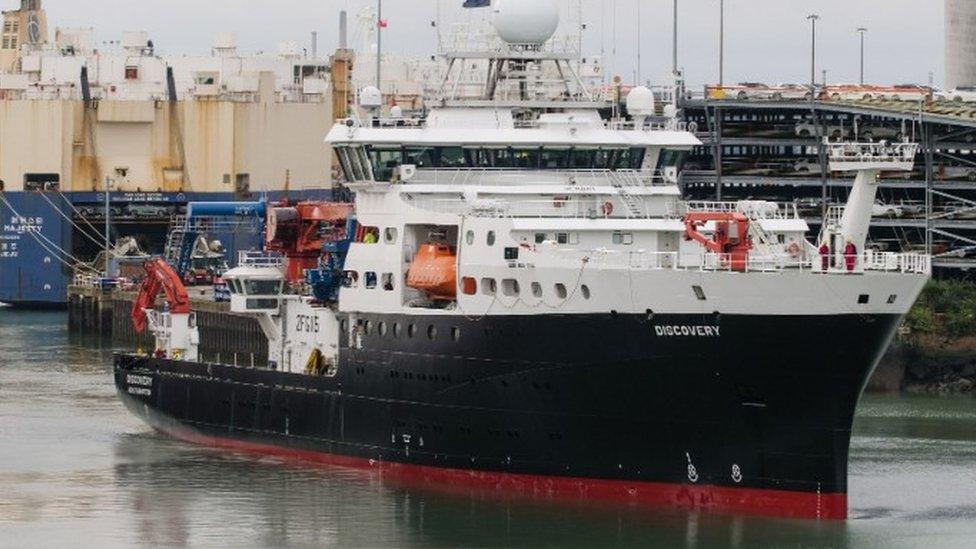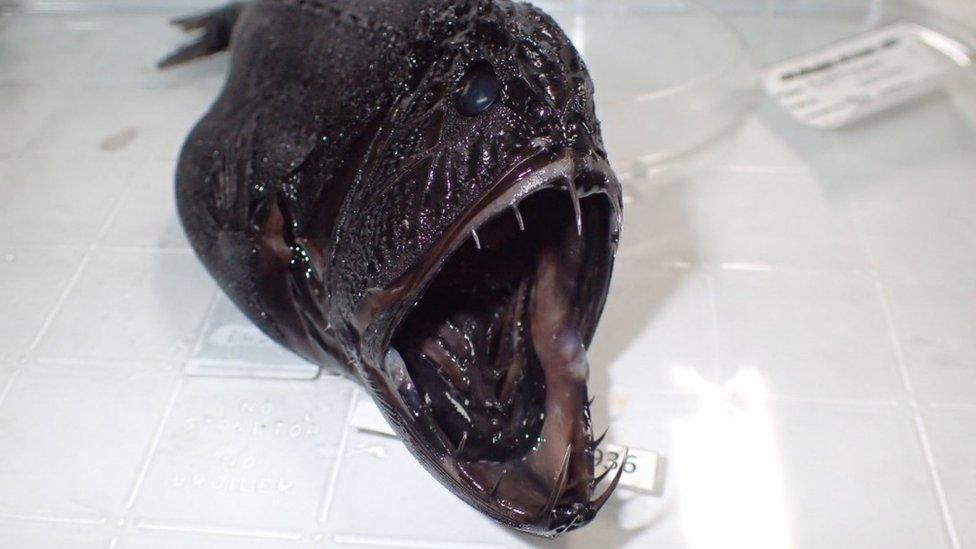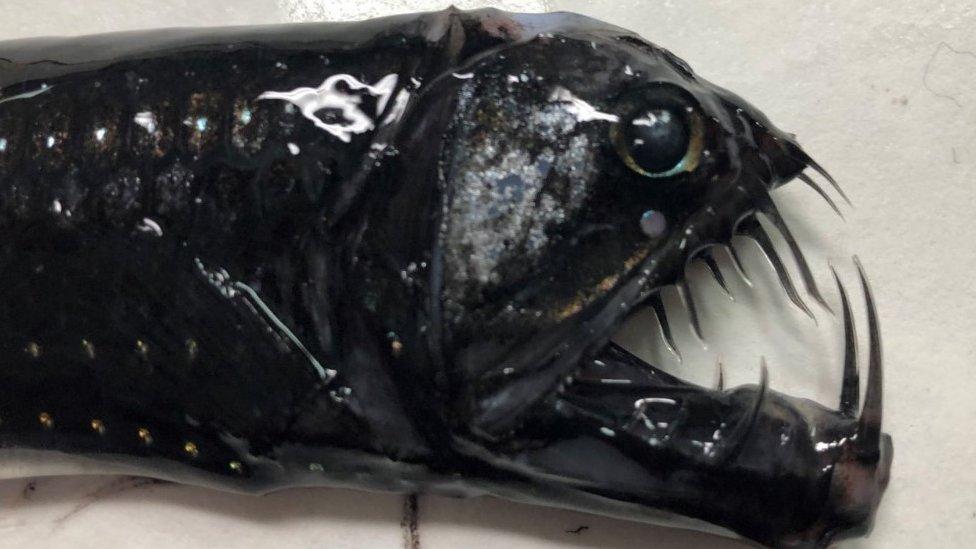Royal Research Ship Discovery departs on 9,000-mile expedition
- Published

The team of 50 scientists and crew members will spend 60 days at sea onboard RRS Discovery
A research ship has left from Southampton on a 9,000-mile expedition to the South Atlantic Ocean.
The Royal Research Ship (RRS) Discovery is making the six-week voyage to survey the seabed off Ascension Island and St Helena.
During the trip, the team of scientists onboard will use underwater cameras to explore hydrothermal vents on the 4,000m deep (13,123ft) seabed.
They hope to gather and analyse samples and find previously unknown species.

The team expects to encounter a range of marine wildlife including common fangtooth, which were identified on previous trips
The ship is sailing as part of the UK Government's Blue Belt Programme, external - an international maritime conservation scheme.
St Helena and Ascension have been chosen as they are home to two of the world's largest Marine Protected Areas and host a variety of species, such as whale sharks, yellowfin tuna, humpback whales and green turtles.
The RRS Discovery is equipped with dry and wet labs for the scientists to store and analyse the samples collected, as well as state-of-the-art survey equipment such as deep-water cameras.

St Helena and Ascension have been chosen for the mission as they are home to two of the world’s largest Marine Protected Areas
The team will also be monitoring human activities, such as illegal fishing in the protected waters.
Lord Goldsmith, minister for climate and environment, said: "This is the latest example of British science leading the way in understanding and protecting our oceans for future generations.
"The knowledge the survey contributes will help us understand the abundance of rare species in need of our protection and I am incredibly excited to see what the scientists find."
The ship left on Thursday and is expected to arrive in early December.

Follow BBC South on Facebook, external, Twitter, external, or Instagram, external. Send your story ideas to south.newsonline@bbc.co.uk, external.